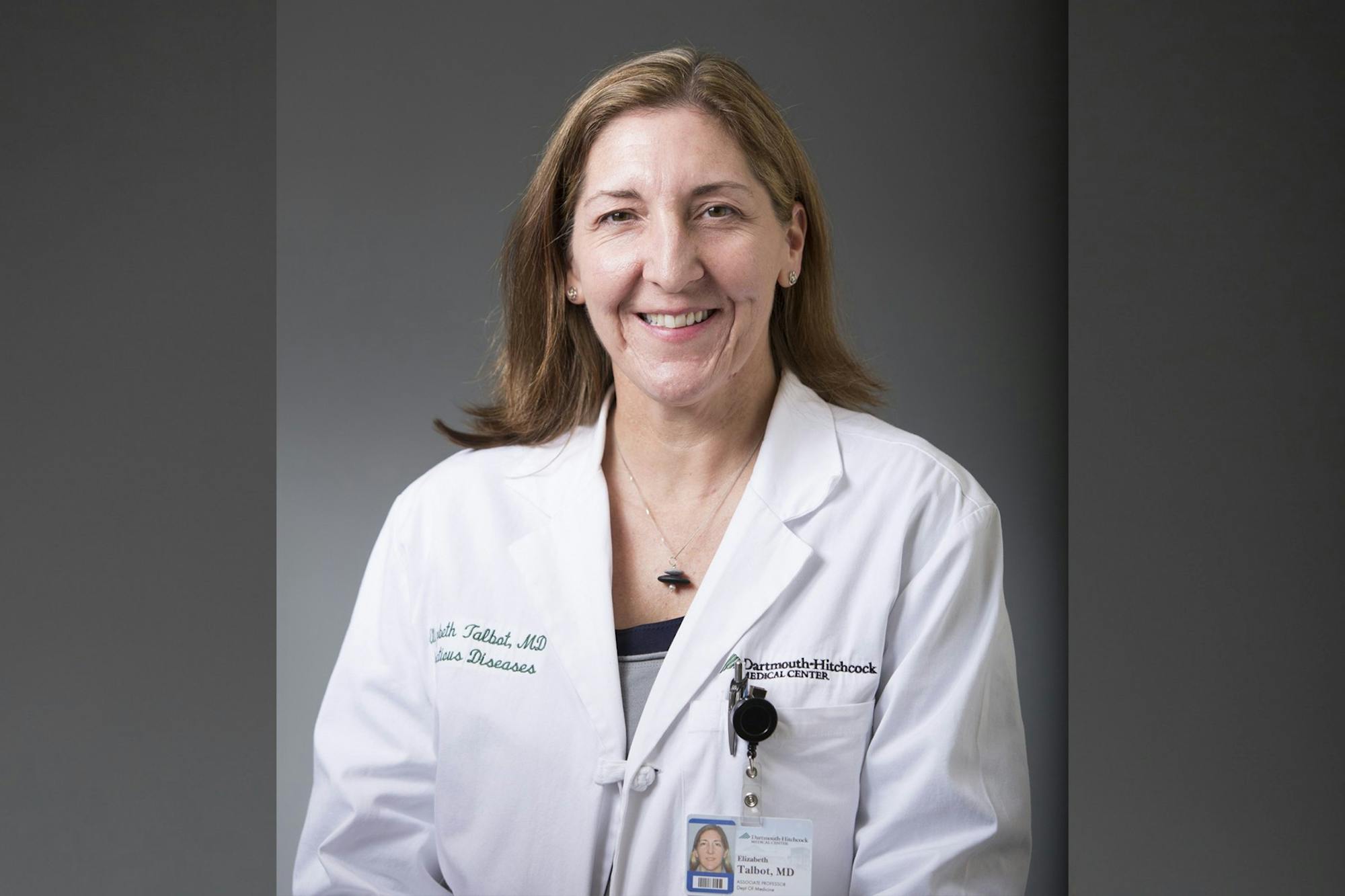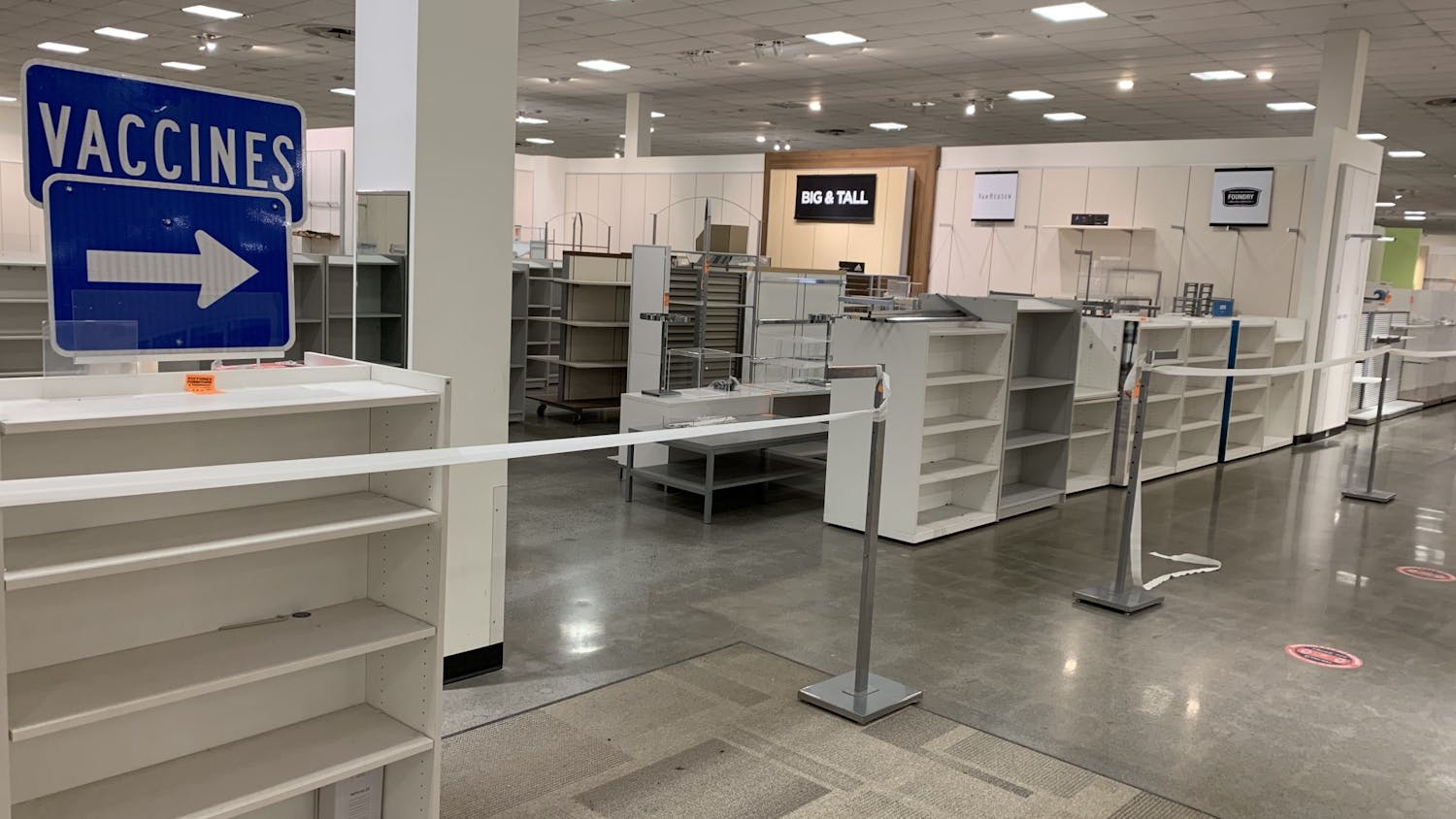Earlier this month, the College announced a partnership with the state of New Hampshire to begin vaccinating eligible students and employees for COVID-19. The vaccines are soon expected to become even more widely available, as Gov. Chris Sununu announced that all New Hampshire residents 16 and older will be able to register for a vaccine appointment starting April 2, this Friday. The Dartmouth spoke with Elizabeth Talbot, Geisel School of Medicine professor, infectious disease physician at Dartmouth-Hitchcock Medical Center and New Hampshire deputy state epidemiologist, about vaccine efficacy and the implications for Dartmouth students.
Right now, New Hampshire is receiving shipments of three different COVID-19 vaccines: Pfizer, Moderna, and Johnson & Johnson. Are there substantial differences in effectiveness between the three types, and what should Dartmouth community members know about each vaccine before their appointment?
These three different vaccines have exceeded our expectations in terms of safety and efficacy — that is, how well they work in the Phase III trials for which we have data. There are differences between these vaccines, including handling — the mRNA vaccines, Pfizer and Moderna, require ultra-cold chain storage and a two-dose series, whereas the Johnson & Johnson vaccine is a single-dose series. The handling for the Johnson & Johnson vaccine is much simpler in terms of the cold requirements.
“Vaccine hesitancy” has come to the forefront of the political debate with concerns surrounding the rapid timeline for vaccine production and potential side effects. Are these concerns merited, and should they stop someone from getting a vaccine?
It’s appropriate to have questions about any product that you’ll be taking. I’ve heard many people ask, “How can they have been developed so fast?” and, “Are they safe?” I have learned for myself, in answering my own questions, that at every step of the way, safety has been the priority. These vaccines have been reviewed by our Food and Drug Administration, the Advisory Committee on Immunization Practices, and our Centers for Disease Control and Prevention through independent analysis.
The reason that we have been able to move as quickly as we have moved is fourfold. One, the vaccine trial network was in place; we used the HIV trial networks to test these very quickly. Manufacturing of the vaccine itself occurred even before the Phase III trials were completed, so we had some vaccines ready as soon as the FDA, ACIP and CDC approved their use. Another reason that they’ve come to us quickly is that the mRNA technology that is used by the Moderna and Pfizer vaccines is very fast to produce. And fourth, our regulatory agencies agreed there would be no delay in their action. They worked very hard, including weekends, to bring this vaccine into our population because it is so desperately needed.
Most college students are not at risk of serious disease if they contract COVID-19. With that said, how important is it for Dartmouth students to receive a vaccine when available?
I would suggest that there are some students who are at risk for severe acute disease because of other illnesses they have or other risk factors. Perhaps more relevant, I think, is the emerging data that COVID-19 will strike anyone regardless of age.
There is the increasing recognition that people who have even asymptomatic or mildly symptomatic acute COVID-19 may have months of persistent symptoms that everyone would want to avoid. These symptoms include fatigue, brain fog, shortness of breath, even heart effects for some people. So there is every reason for your individual health to avoid getting COVID-19. I would also posit that the Dartmouth community should rally in their role to prevent ongoing transmission within their larger community — to people who live in Hanover, to the entire community of New Hampshire and Vermont and beyond.
Last month, a COVID-19 outbreak at the College led to nearly 150 students testing positive. Do those who have already contracted the novel coronavirus need to receive the vaccine?
Absolutely. Having COVID-19 does give a person some short-lived protection against reinfection, but we think this is measured in months, not years. Every expert agency recommends that persons who have had confirmed COVID-19 still access the vaccine when it’s available to them. This will provide longer protection and also avert any risk of having “long COVID” if reinfection does occur.
Under Sununu’s recent announcement, out-of-state Dartmouth students may not be able to receive a vaccine until late spring or early summer, meaning that some on-campus will be vaccinated earlier than others. For those who are vaccinated, what steps should they take to minimize risk to those not yet vaccinated?
The community mitigation strategies that are suggested for people regardless of their vaccine status are the same: universal masking, maintaining social distance, avoiding crowds, reporting for testing and self-isolation if symptomatic. All the same processes are still in place for our communities until we have far less circulating virus.
There are some perks of vaccination that are being rolled out cautiously, such as reducing the need for quarantine following exposure to a case or travel in those who have received their full vaccination series.
Will herd immunity lead to a “normal” residential term for undergraduates?
With a combination of existing herd immunity from disease itself and also the availability of vaccines, we’re looking to achieve up to 90% immunity in our population in order to thwart this virus.
My hope and expectation is that we will move toward normal again. I do believe that the time is coming where we’ve prepared to go back to in-person school at every level, so as vaccines roll out and as the numbers of new cases decrease, it is likely that we will come back to a more familiar manner of education, including in-person, including social gatherings and the like. We’re not there yet, and I want to exhort everyone to maintain vigilance. There’s light at the end of the tunnel, but we still have to be responsible members of the community and maintain those measures.
Do you have any final thoughts to share with the Dartmouth community?
I just want to let people know that our process in allocating vaccines has embraced fairness, justice, equity and transparency. There’s a lot of information available to anyone who has questions. Our New Hampshire COVID-19 website has frequently-asked questions. We provide a daily update on the number of cases and also the number of people who are vaccinated.
I think it’s relevant for everyone facing vaccination to be aware that side effects are expected. They’re normal, and they show that your immune system is taking up the challenge to protect you. They include soreness of the arm, like many vaccines, but people can also have systemic side effects, like headache, feeling sore, feeling tired, even having a fever. So be aware that that’s expected and even hoped for because it reflects your immune system working. Second, be practical about the fact that you may have symptoms that may be confused with COVID-19. So for example, taking the vaccine on a Tuesday if you have no classes on Wednesday makes sense to me as a practical step.




